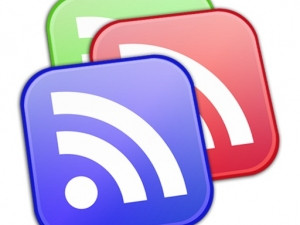
Google has announced another round of spring cleaning, which will this time involve the shutting down of the Google Reader service.
In an official blog post, Google's SVP of technical infrastructure, Urs H"olzle, says: "We're living in a new kind of computing environment. Everyone has a device, sometimes multiple devices. It's been a long time since we have had this rate of change - it probably hasn't happened since the birth of personal computing 40 years ago. To make the most of these opportunities, we need to focus - otherwise we spread ourselves too thin and lack impact."
Google has closed 70 features and services since beginning its spring cleaning project in 2011.
Speaking of the retiring of Google Reader, H"olzle says: "We launched Google Reader in 2005 in an effort to make it easy for people to discover and keep tabs on their favourite Web sites. While the product has a loyal following, over the years usage has declined.
"So, on 1 July, we will retire Google Reader. Users and developers interested in RSS alternatives can export their data, including their subscriptions, with Google Takeout over the course of the next four months."
Other services to be retired in this round of spring cleaning include Google Building Maker, Google Cloud Connect and the Google Voice app for BlackBerry.
"These changes are never easy. But by focusing our efforts, we can concentrate on building great products that really help in their lives," says H"olzle.
Google software engineer, Alan Green, says: "We know Reader has a devoted following who will be very sad to see it go. We're sad too.
"There are two simple reasons for this: usage of Google Reader has declined, and as a company we're pouring all of our energy into fewer products. We think that kind of focus will make for a better user experience."
No chance to grow
Responding to a question on Quora about why Google Reader is being shut down, former Google Reader product manager, Brian Shih (who left Google in 2011), has offered his personal perspective (which he has emphasised is purely his own speculation).
Shih says: "Reader has been fighting for approval/survival at Google since long before I was a PM for the product. I'm pretty sure Reader was threatened with de-staffing at least three times before it actually happened."
According to Shih, Google Reader engineers were often asked to shift their focus to Google's social products and services. "Ironically, I think the reason Google always wanted to pull the Reader team off to build these other social products was that the Reader team actually understood social (and tried a lot of experiments over the years that informed the larger social features at the company). Reader's social features also evolved very organically in response to users, instead of being designed top-down like some of Google's other efforts."
Shih believes Google Reader has survived until now because of it being a useful source of content for Google+. "But after switching the sharing features over to G+ (the so called 'share-pocalypse') along with the redesigned UI, my guess is that usage just started to fall - particularly around sharing.
"So with dwindling usefulness to G+, (likely) dwindling or flattening usage due to being in maintenance, and Google's big drive to focus in the last couple of years, what choice was there but to kill the product?"
Shih adds: "Personally, I think there is still a lot of value a service like Reader could provide - particularly in a world with increasing information overload coming at us from many different sources. But Reader at Google was pigeonholed as an RSS-reader explicitly, and didn't have a chance to grow beyond that to explore that space. But that's neither here nor there."
Share